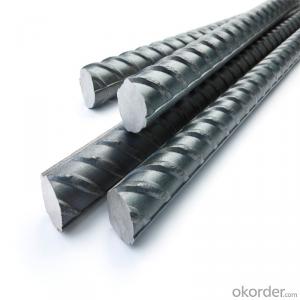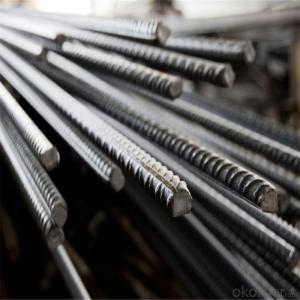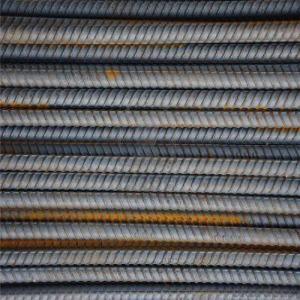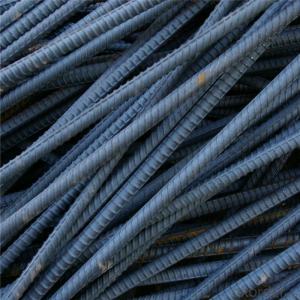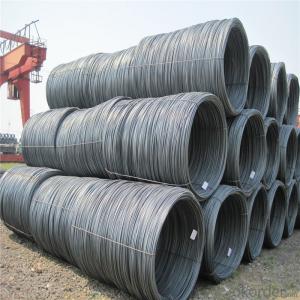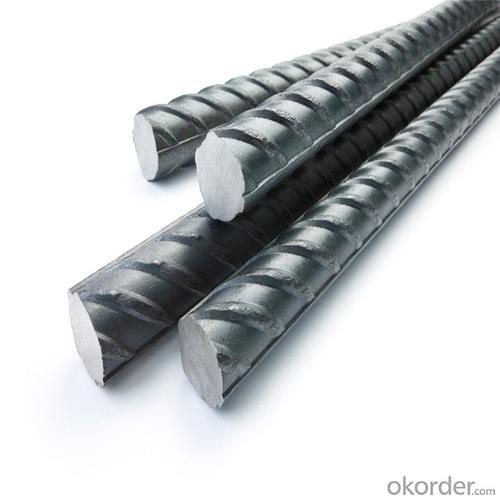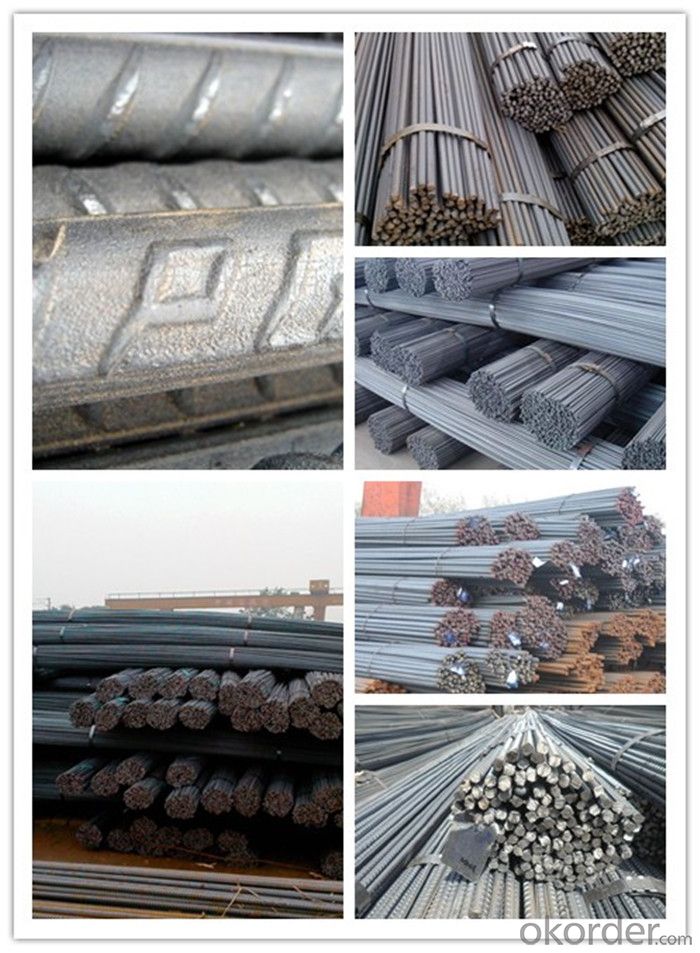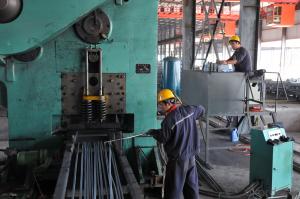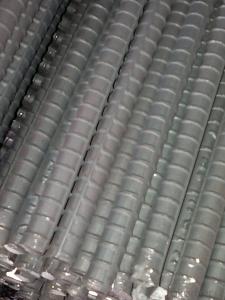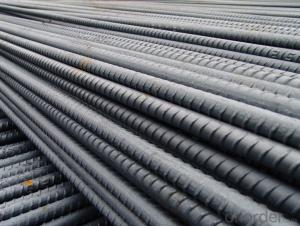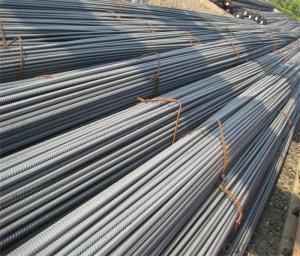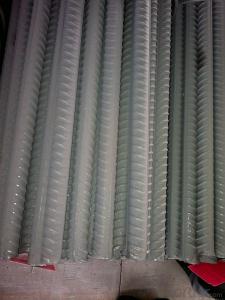Bs4449 Steel Rebars for Concrete Building
- Loading Port:
- Tianjin
- Payment Terms:
- TT OR LC
- Min Order Qty:
- 100 m.t.
- Supply Capability:
- 50000 m.t./month
OKorder Service Pledge
OKorder Financial Service
You Might Also Like
Specification
Bs4449 Steel Rebars for Concrete Building
Description of Bs4449 Steel Rebars :
1, Diameter: 5.5mm-10mm rounds reinforcing steel bar
10m- 40 rods reinforcing Bs4449 Steel Rebars
2, Length: 6m, 9m, 12m or customized
3, Standard: GB, ASTM, AISI, SAE, DIN, JIS, EN
OEM technology - send detailed technical parameters for accurate quotation.
2, Produce Process: smelt iron - EAF smelt billet - ESR smelt billet -
hot rolled or forged to get the steel round bar and plate
3, Heat Treatment: annealing, normalizing, tempering, quenching
4, Surface Treatment: Black
5, Quality Assurance: We accept third party inspection for all orders.
You can ask testing organizations such as SGS, BV, etc. to test our products before shipping.
Chemical Composition of Bs4449 Steel Rebars :
Grade | Technical data of the original chemical composition(%) | |||||
Reinforcing steel bar HRB335 | C | Mn | Si | S | P | B |
≤0.25 | ≤1.60 | ≤0.80 | ≤0.045 | ≤0.045 | >0.0008 | |
Physics Capability | ||||||
Yield Strength(N/cm2) | Tensile Strength(N/cm2) | Elongation(%) | ||||
≥ 335 | ≥490 | ≥16 | ||||
Reinforcing steel bar HRB400 | C | Mn | Si | S | P | B |
≤0.25 | ≤0.16 | ≤0.80 | ≤0.045 | ≤0.045 | 0.04-0.12 | |
Physics Capability | ||||||
Yield Strength(N/cm2) | Tensile Strength(N/cm2) | Elongation(%) | ||||
≥ 400 | ≥ 570 | ≥ 14 | ||||
Product Show of Bs4449 Steel Rebars :
Company Information:
CNBM International Corporation is the most important trading platform of CNBM group.
Whith its advantages, CNBM International are mainly concentrate on Cement, Glass, Iron and Steel, Ceramics industries and devotes herself for supplying high qulity series of refractories as well as technical consultancies and logistics solutions.

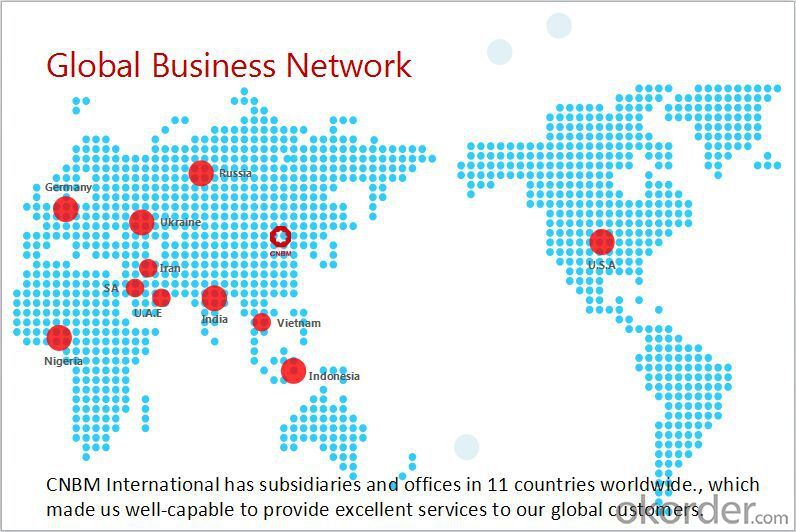
FAQ:
1, Your advantages?
professional products inquiry, products knowledge train (for agents), smooth goods delivery, excellent customer solution proposale
2, Test & Certificate?
SGS test is available, customer inspection before shipping is welcome, third party inspection is no problem
3, Factory or Trading Company?
CNBM is a trading company but we have so many protocol factories and CNBM works as a trading department of these factories. Also CNBM is the holding company of many factories.
4, Payment Terms?
30% TT as deposit and 70% before delivery.
Irrevocable L/C at sight.
5, Trading Terms?
EXW, FOB, CIF, FFR, CNF
6, After-sale Service?
CNBM provides the services and support you need for every step of our cooperation. We're the business partner you can trust.
For any problem, please kindly contact us at any your convenient time.
We'll reply you in our first priority within 24 hours.
- Q: What are the different welding techniques used for special steel?
- There are several welding techniques used for special steel, including gas metal arc welding (GMAW), shielded metal arc welding (SMAW), flux-cored arc welding (FCAW), and tungsten inert gas welding (TIG). These techniques are chosen based on factors such as the type of special steel, its thickness, and the desired weld characteristics. Each technique has its own advantages and limitations, and the selection depends on the specific requirements of the welding application.
- Q: What are the properties of leaded steel?
- Leaded steel is a type of steel alloy that contains a small percentage of lead. This addition of lead provides several properties to the steel, including improved machinability, enhanced lubricity, and better chip formation during machining processes. Leaded steel also exhibits increased resistance to wear and galling, making it suitable for applications in which friction and sliding contact occur. Additionally, leaded steel has good corrosion resistance and can be easily welded and formed. However, it is important to note that leaded steel should be handled with caution due to the potential health hazards associated with lead exposure.
- Q: Can special steel be used in the defense sector?
- Indeed, in the defense sector, special steel finds itself as a viable option. Special steel, which encompasses alloys or compositions designed with specific attributes such as high strength, hardness, resistance to corrosion, or heat resistance, proves to be suitable for a range of defense applications. These applications include the construction of armored vehicles, naval vessels, aircraft, and weaponry. Within the defense sector, special steel serves as a valuable resource for manufacturing components and structures necessitating exceptional strength and durability. For instance, it can be utilized to produce armor plates for tanks and armored vehicles, which must endure high impact and ballistic threats. Additionally, special steel can be employed in the construction of naval vessels, providing corrosion resistance and enhancing overall structural integrity. Furthermore, the defense industry heavily relies on special steel for manufacturing aircraft parts and weaponry. Aircraft components, such as landing gear, engine parts, and structural elements, demand materials of high strength to ensure safe and reliable operation. Special steel alloys fulfill this requirement by providing the necessary strength and resistance to extreme conditions, including high temperatures and pressures, making them an ideal choice for these applications. Moreover, special steel plays a vital role in the production of various types of weapons, such as firearms and blades. Its exceptional strength and hardness properties render it suitable for manufacturing gun barrels, bulletproof vests, and knives employed by military personnel. To summarize, special steel holds significant value within the defense sector due to its exceptional properties, including strength, hardness, corrosion resistance, and heat resistance. Its extensive applications in the construction of armored vehicles, naval vessels, aircraft, and weaponry ensure the safety, durability, and effectiveness of military equipment.
- Q: What are the main characteristics of wear-resistant steel?
- Wear-resistant steel, also known as abrasion-resistant steel, possesses unique characteristics that make it highly resistant to wear and tear. The main characteristics of wear-resistant steel include: 1. High hardness: Wear-resistant steel is typically hardened to a high level, which provides it with excellent resistance against abrasion, impact, and sliding wear. This hardness is achieved through processes such as quenching and tempering, resulting in a steel material that can withstand heavy loads and abrasive environments. 2. Exceptional toughness: In addition to high hardness, wear-resistant steel also exhibits exceptional toughness. This means that it can absorb impact and withstand heavy shocks without fracturing or breaking. This characteristic is crucial in applications where both abrasion and impact resistance are required, such as in mining equipment and earthmoving machinery. 3. Superior strength: Wear-resistant steel is known for its high strength, enabling it to withstand extreme forces and pressures. This strength is achieved through the use of alloys and heat treatment processes, resulting in a steel material that can withstand heavy loads and resist deformation even under intense wear conditions. 4. Excellent weldability: Wear-resistant steel is often designed with good weldability, allowing it to be easily joined or repaired using various welding techniques. This characteristic is significant as it allows for the fabrication of wear-resistant components and the repair of worn-out parts in a cost-effective manner. 5. Corrosion resistance: Some wear-resistant steel grades are also formulated to exhibit corrosion resistance properties. This feature ensures that the steel remains intact and does not deteriorate when exposed to harsh environments, chemicals, or moisture. This characteristic is particularly useful in applications where wear and corrosion occur simultaneously, such as in marine equipment or mining operations. 6. Extended service life: Due to its high hardness, exceptional toughness, superior strength, and corrosion resistance, wear-resistant steel offers an extended service life compared to other types of steel. Its ability to withstand wear, impact, and abrasion allows for reduced downtime and maintenance costs, making it highly desirable in various industries, including mining, construction, and manufacturing. Overall, the main characteristics of wear-resistant steel make it a reliable and durable material for applications where prolonged exposure to abrasive conditions is expected. Its unique properties ensure that it can withstand heavy loads, resist wear and tear, and maintain its integrity, ultimately leading to improved equipment performance and cost savings.
- Q: Can special steel be used in the oil and gas equipment manufacturing industry?
- Yes, special steel can be used in the oil and gas equipment manufacturing industry. Special steel, such as stainless steel or alloy steel, offers high strength, corrosion resistance, and durability, making it suitable for various applications in the oil and gas sector. It is commonly used in the manufacturing of pipes, valves, fittings, and other critical components that can withstand harsh operating conditions and prevent leakage or failure.
- Q: How is corrosion-resistant steel used in marine environments?
- Corrosion-resistant steel is used extensively in marine environments due to its ability to withstand the harsh conditions of saltwater exposure. It is commonly used in the construction of ships, oil rigs, offshore platforms, and other marine structures. The steel's high resistance to corrosion helps prevent rusting and deterioration, ensuring the longevity and durability of these structures in the corrosive marine environment.
- Q: Can special steel be used for making nuclear industry components?
- Indeed, special steel, also known as alloy steel, possesses the necessary properties to be utilized in the creation of components for the nuclear industry. These properties encompass high strength, excellent corrosion resistance, as well as good resistance to high temperatures and radiation. Components within the nuclear industry, such as reactor pressure vessels, steam generators, and fuel rods, endure extreme conditions characterized by high pressure, high temperature, and exposure to radiation. Special steel is capable of withstanding these conditions, maintaining its structural integrity, and ultimately guaranteeing the secure and dependable operation of nuclear facilities. The utilization of special steel within the nuclear industry also serves to prevent the release of radioactive materials. The exceptional corrosion resistance of special steel diminishes the likelihood of leakage and contamination, thereby augmenting the safety of nuclear power plants. Moreover, special steel can be customized to fulfill the specific requirements of the nuclear industry. Diverse types of special steel alloys can be developed by employing specific compositions and heat treatments, optimizing their properties for nuclear applications. This facilitates the customization of steel components to meet the distinct demands of the nuclear industry. In conclusion, special steel can undoubtedly be employed in the production of nuclear industry components due to its high strength, corrosion resistance, and resistance to high temperatures and radiation. Its utilization contributes to the safety and reliability of nuclear facilities, while simultaneously allowing for customization to fulfill specific requirements.
- Q: How is special steel used in the production of turbine shafts?
- Special steel is used in the production of turbine shafts due to its high strength, durability, and resistance to corrosion and fatigue. The unique properties of special steel make it ideal for withstanding the extreme conditions and loads experienced by turbine shafts during operation, ensuring efficient and reliable power generation.
- Q: How does special steel contribute to the manufacturing of springs for automotive applications?
- The unique properties and characteristics of special steel play a crucial role in the manufacturing of springs for automotive applications. Springs are essential components in automobiles as they provide suspension and shock absorption, which ensures a comfortable and smooth ride. One of the main advantages of using special steel in spring manufacturing is its high strength and durability. Springs are constantly subjected to stress and repetitive loading, but special steel can withstand these forces without deforming or breaking due to its exceptional strength. This property ensures that the springs can maintain their shape and performance over extended periods of use, guaranteeing reliable functionality. Special steel also offers excellent fatigue resistance, a vital characteristic for automotive springs. Fatigue occurs when a material weakens and eventually fails after repeated loading and unloading cycles. However, special steel is specifically designed to withstand fatigue, allowing the springs to endure constant pressure and stress without prematurely failing. Furthermore, special steel provides superior corrosion resistance, which is particularly important for automotive springs. Cars are exposed to various environmental elements, such as moisture, road salt, and chemicals, which can lead to corrosion and deterioration of the springs. By utilizing special steel with enhanced corrosion resistance, manufacturers can ensure that the springs have a longer lifespan and maintain their performance even in harsh conditions. Additionally, special steel offers versatility in terms of its composition and properties. Manufacturers can choose from a wide range of special steel alloys, each with its own unique characteristics, to meet specific requirements. This flexibility in material selection empowers manufacturers to design and produce springs that are tailored to the specific needs of automotive applications. Some alloys offer greater elasticity, allowing the springs to flex and absorb shocks more effectively, while others provide higher hardness, enhancing the springs' load-bearing capacity. In conclusion, special steel significantly contributes to the manufacturing of springs for automotive applications by providing high strength, durability, fatigue resistance, corrosion resistance, and versatility. These properties enable the production of reliable, long-lasting springs that ensure optimal suspension, shock absorption, and overall performance in vehicles.
- Q: How does special steel perform in high-temperature hydrogen environments?
- Special steel is known for its excellent performance in high-temperature hydrogen environments. It exhibits superior resistance to hydrogen embrittlement, corrosion, and material degradation, making it a suitable choice for applications where exposure to high-temperature hydrogen is prevalent. The steel's unique composition and heat treatment processes enhance its mechanical properties and enable it to maintain its structural integrity even in challenging conditions. Overall, special steel demonstrates remarkable performance and reliability when subjected to high-temperature hydrogen environments.
Send your message to us
Bs4449 Steel Rebars for Concrete Building
- Loading Port:
- Tianjin
- Payment Terms:
- TT OR LC
- Min Order Qty:
- 100 m.t.
- Supply Capability:
- 50000 m.t./month
OKorder Service Pledge
OKorder Financial Service
Similar products
Hot products
Hot Searches
Related keywords
